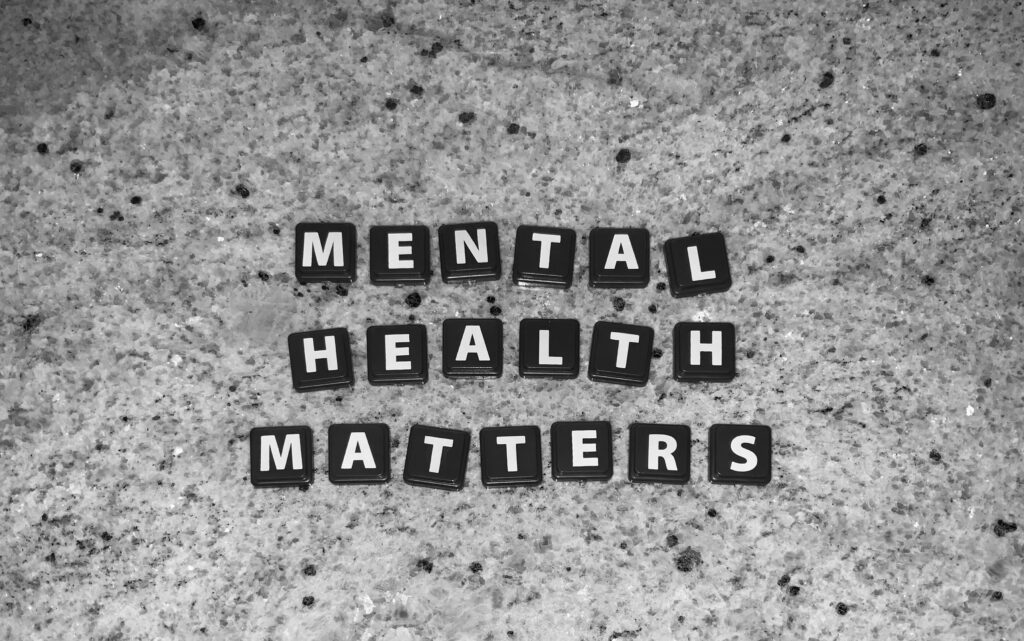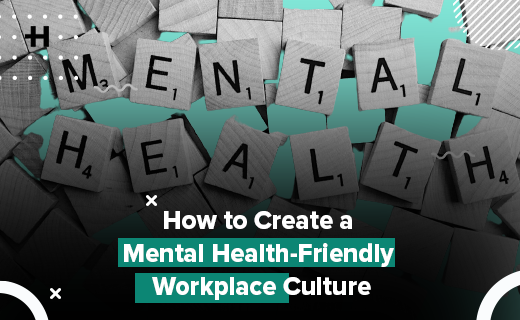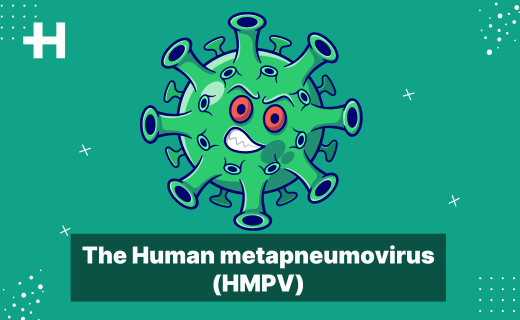Mental health is just as important as physical health, yet it is often neglected. With the rise of stress, anxiety, and depression in today’s fast-paced world, it is crucial to take care of our mental well-being.
Mental health is an integral aspect of overall well-being, and it’s essential to recognize mental health. With the rise of mental health awareness, many organizations are now offering mental health employee benefits to support their employees’ mental health needs. This article will explore the importance of mental health employee benefits and how they can improve employee well-being and productivity.
In the workplace today, mental health is a major problem. The Kaiser Family Foundation conducted a poll, and it found that nearly 4 out of 10 businesses updated their benefit plans to provide mental health treatments to their employees better. Of those, 31% implemented services like telemedicine.

Table of Contents
Why Mental Health Matters
Mental health is a crucial aspect of our overall well-being that affects how we think, feel, and behave. It is essential to prioritize mental health because:
It impacts physical health
Mental health and physical health are interconnected, and one can affect the other. Poor mental health can lead to physical health problems, such as cardiovascular disease, obesity, and diabetes. On the other hand, physical health problems can impact mental health, causing anxiety, depression, and other mental illnesses.
It affects relationships
Mental health also plays a vital role in our relationships with others. When we have good mental health, we are more likely to have positive relationships, communicate effectively, and have a support system. However, when we struggle with mental health issues, we may experience conflict, isolation, and difficulty maintaining relationships.
It impacts work performance
Mental health also affects our work performance. When we have good mental health, we are more productive, focused, and engaged at work. However, when we struggle with mental health problems, our work performance may suffer, leading to absenteeism, reduced productivity, and even job loss.
It is common
Mental health issues are prevalent, and anyone can experience them. Some of the most common mental health issues include anxiety disorders, depression, bipolar disorder, schizophrenia, and eating disorders. These conditions can affect people of any age, gender, or background.
It is stigmatized
Stigma and discrimination associated with mental illness are some of the biggest barriers to seeking help for mental health issues. Many people are reluctant to seek treatment due to fear of being judged, labeled, or ostracized. This stigma can have severe consequences, including social exclusion, lack of access to resources, and negative impacts on mental health.
It has significant costs
Mental health issues also have significant economic and social costs. The World Health Organization estimates that the global cost of mental illness will reach $6 trillion by 2030. This cost includes direct medical expenses, lost productivity, and the burden on families and caregivers.
The Impact of Mental Health Issues
Common Mental Health Issues
Mental health issues are prevalent, and anyone can experience them. Some of the most common mental health issues include anxiety disorders, depression, bipolar disorder, schizophrenia, and eating disorders. These conditions can affect people of any age, gender, or background.
Stigma and Discrimination
One of the biggest barriers to seeking help for mental health issues is the stigma and discrimination associated with mental illness. Many people are reluctant to seek treatment due to fear of being judged, labeled, or ostracized. This stigma can have severe consequences, including social exclusion, lack of access to resources, and negative impacts on mental health.
Economic and Social Costs
Mental health issues also have significant economic and social costs. The World Health Organization estimates that the global cost of mental illness will reach $6 trillion by 2030. This cost includes direct medical expenses, lost productivity, and the burden on families and caregivers.
Taking Care of Your Mental Health
Self-Care
Taking care of your mental health is essential for overall well-being. There are several things you can do to promote good mental health, including exercise, healthy eating, getting enough sleep, and managing stress. Practicing self-care can help reduce the risk of mental health problems and improve overall quality of life.
Seeking Help
If you are struggling with mental health issues, seeking help is essential. There are many resources available, including therapy, medication, support groups, and hotlines. Seeking help can help you manage your symptoms, improve your quality of life, and prevent more severe mental health problems.
How to Maintain Your Mental Health?
- Take care of your physical health
The first step to maintaining your mental health is to take care of your physical health. A healthy body leads to a healthy mind. Here are some tips to keep your physical health in check:
- Exercise regularly: Exercise is not only good for your physical health but also for your mental health. It helps to reduce stress, anxiety, and depression. Aim for at least 30 minutes of exercise per day.
- Eat a balanced diet: A balanced diet is essential for good physical and mental health. Include plenty of fruits, vegetables, whole grains, lean proteins, and healthy fats in your diet.
- Get enough sleep: Sleep is crucial for both physical and mental health. Aim for 7-9 hours of sleep per night.
- Practice relaxation techniques
Relaxation techniques can help to reduce stress and promote mental well-being. Here are some relaxation techniques you can try:
- Meditation: Meditation is a great way to calm your mind and reduce stress. Find a quiet place and focus on your breathing.
- Deep breathing: Deep breathing can help to reduce anxiety and promote relaxation. Inhale deeply through your nose and exhale slowly through your mouth.
- Yoga: Yoga combines physical postures, breathing techniques, and meditation to promote relaxation and reduce stress.
- Stay connected with others
Social support is essential for good mental health. Staying connected with friends and family can help to reduce stress and promote happiness. Here are some ways to stay connected with others:
- Join a club or group: Joining a club or group can help you to meet new people and make new friends.
- Volunteer: Volunteering can not only help others but also give you a sense of purpose and connection.
- Spend time with loved ones: Make time for your friends and family. Plan regular outings or dinners together.
- Set realistic goals
Setting goals can help to give you a sense of purpose and direction. However, it is important to set realistic goals that are achievable. Here are some tips for setting realistic goals:
- Make your goals specific and measurable.
- Break your goals down into smaller, manageable steps.
- Celebrate your successes along the way.
- Practice gratitude
Practicing gratitude can help to promote happiness and reduce stress. Here are some ways to practice gratitude:
- Keep a gratitude journal: Write down three things you are grateful for each day.
- Say thank you: Express gratitude to those around you.
- Focus on the positive: Instead of dwelling on the negative, focus on the positive aspects of your life.
- Seek professional help
If you are struggling with your mental health, it is important to seek professional help. Here are some resources you can turn to:
- Talk to your doctor: Your doctor can refer you to a mental health professional.
- Find a therapist: A therapist can help you to work through your problems and develop coping strategies.
- Join a support group: A support group can provide you with a safe and supportive environment to share your experiences and learn from others.
Symptoms of Mental Health Illness
It is essential to recognize the symptoms of mental health illness to seek help as soon as possible. Some common symptoms include:
Persistent sadness or low mood
Feeling sad or low for extended periods can be a symptom of depression or other mental health disorders.
Anxiety and worry
Excessive worrying or feeling anxious can be a symptom of an anxiety disorder or other mental health issues.
Changes in sleep patterns
Sleeping too much or too little or having difficulty falling asleep can be a symptom of depression, anxiety, or other mental health conditions.
Changes in appetite or weight
Significant changes in appetite or weight can be a symptom of depression, anxiety, or an eating disorder.
Fatigue or loss of energy
Feeling constantly tired or lacking energy can be a symptom of depression or other mental health issues.
Social withdrawal
Withdrawing from social activities or isolating oneself can be a symptom of depression, anxiety, or other mental health disorders.
If you experience any of these symptoms, it is essential to seek help from a mental health professional.
Healthysure do not allow depression, anxiety, loneliness or any kind of mental illness to get near their customers with their employee benefits plan!
What are mental health benefits?
Benefits for mental health may be related to a more complete health insurance program that includes counseling or treatment. It might also be an Employee Assistance Program (EAP), which offers a broader range of services to assist staff in resolving issues, whether they involve money, stress, or something unrelated to the workplace. Also, a lot of top-tier EAPs provide mental health services, frequently via in-person, telephone, or video therapy. Strategic employee management that prioritizes mental health can improve productivity, reduce absenteeism, and enhance the overall well-being of employees.
No matter which of these approaches you choose to use—or both—mental health benefits provide additional assistance for workers whenever they need it. Also, it offers corporations huge profits.
The prevention of burnout enhanced employee health, and higher productivity are the three most important reasons why firms include mental health benefits in their employee benefits packages.
- Enhance your employees’ overall well-being: If left unaddressed, mental illness can severely impact employees’ physical health, making them more vulnerable to heart disease and cancer. Over time, this can increase healthcare costs for both the employer and the employee. By investing in mental health benefits, employers can help mitigate threats to their employee’s physical health, thereby reducing long-term healthcare expenses.
- Prevent employee burnout: In India, employee burnout is a growing concern as employees face increasing workloads, long working hours, and high levels of stress. Burnout can lead to decreased productivity, increased absenteeism, and employee turnover, all of which can have significant financial implications for businesses. Investing in mental health benefits can help employers reduce burnout by improving employee well-being, increasing retention rates, and promoting a positive work culture.
- Boost employee productivity: In India, mental health issues can have a significant impact on employee productivity, resulting in reduced output, lower quality work, and missed deadlines. Mental health benefits can help employees cope with stress and anxiety, leading to increased focus and productivity at work. In addition, happier and healthier employees are more likely to work collaboratively, communicate effectively, and contribute to a positive work environment. This can result in improved overall productivity and a more profitable business.

Mental health care services covered under group health insurance policies:
- Outpatient counseling: Individual or group counseling sessions with a licensed mental health professional.
- Inpatient treatment: Hospitalization for individuals with severe mental health conditions.
- Prescription medication: Coverage for prescription medications used to treat mental health conditions.
- Telehealth: Coverage for virtual mental health services, such as video counseling sessions.
It is important to note that the specifics of mental health coverage may vary depending on the group health insurance policy. Employers or organizations offering group health insurance policies may choose to offer more comprehensive mental health coverage, while others may offer limited coverage.
It is important for individuals with mental health conditions to understand the mental health coverage provided under their group health insurance policy. They should review the policy and contact their insurance provider if they have any questions or concerns.
If an individual needs mental health care services that are not covered under their group health insurance policy, they may need to pay out-of-pocket for these services. Alternatively, they may be able to seek mental health care services from community health clinics or non-profit organizations that offer low-cost or free services.
In summary, group health insurance policies often include coverage for mental health care services. Individuals should review their policy to understand the specifics of their mental health coverage and seek additional resources if needed.
At Healthysure, we believe that providing comprehensive health insurance coverage, including coverage for mental health care services, is essential to promoting the well-being of employees. We strive to provide our clients with the resources they need to maintain good mental health and achieve a happy and fulfilling life.
If you are interested in learning more about our group health insurance policies and the mental health coverage we provide, please contact us. Our team of experts is here to answer any questions you may have and help you find the right coverage for your needs.
How to assist employees’ mental health at your firm
According to a countrywide employee study, training and more readily available information about where to go or who to contact for mental health care are what people desire most from their workplaces. According to the report, employees value a more transparent workplace atmosphere regarding mental health. Here are ways your business may promote employee mental wellness in light of those findings:
- Create a help program for employees (EAP).
Employee assistance programs (EAPs) are frequently used by businesses to enhance workplace mental health. Some workers might be hesitant to use this resource out of embarrassment, humiliation, and ignorance of how these private programs operate. Yet, there are steps your business may take to boost EAP utilization.
For instance, the Greater Rochester YMCA of New York updated its EAP communication approach. They now distribute a monthly mental health newsletter as opposed to merely placing alerts in the break rooms.
2. Create a supportive culture
Encouraging a workplace culture that supports employee mental health is essential for maintaining a happy and healthy workforce. This can involve promoting open communication, empathy, and understanding, as well as encouraging employees to take breaks, manage their workload, and prioritize self-care.
3. Provide resources and training
Offering resources and training to help employees manage stress and maintain good mental health is a great way to support your workforce. This can include workshops on stress management, mindfulness, and other techniques to help employees cope with workplace stressors.
Conclusion
Mental health is a crucial aspect of overall health and well-being, and employers must take steps to support their employees’ mental health needs. Mental health benefits are an effective way to enhance employees’ overall well-being, prevent employee burnout, and boost productivity. Providing resources and training, creating a supportive culture, and offering Employee Assistance Programs are some of the ways that employers can support their employees’ mental health needs. By investing in mental health employee benefits, employers can create a positive work environment that promotes employee well-being and productivity, ultimately leading to a more profitable business.
TLDR
Mental health is an integral aspect of overall well-being, and employers need to recognize the importance of mental health employee benefits to improve employee well-being and productivity. Mental health benefits can help enhance overall well-being, prevent employee burnout, and boost employee productivity. Offering Employee Assistance Programs, creating a supportive culture, and providing resources and training are great ways to support employees’ mental health in the workplace.
FAQs
Who is responsible for employee mental health?
Employers have a responsibility to provide a safe and healthy work environment for their employees, including supporting their mental health needs. This may include providing mental health benefits, creating a culture of openness and support, and offering resources and training to help employees manage stress and maintain good mental health. However, employees also have a responsibility to take care of their own mental health and seek help when needed.
What if a staff member has mental health issues?
If an employee has mental health issues, it’s important to provide them with the support and resources they need. This may include referring them to an EAP, offering time off for mental health, or providing workplace accommodations such as flexible work arrangements. Employers should also strive to create a culture of openness and understanding, where employees feel comfortable disclosing mental health concerns without fear of stigma or discrimination.
What benefits can be given to employees?
Benefits for mental health can include a range of services and resources to support employees’ mental health needs. This may include health insurance coverage for mental health treatment, Employee Assistance Programs (EAPs), and workshops or training sessions on stress management and mindfulness. Other benefits may include flexible work arrangements, time off for mental health, and access to mental health hotlines or support groups.




